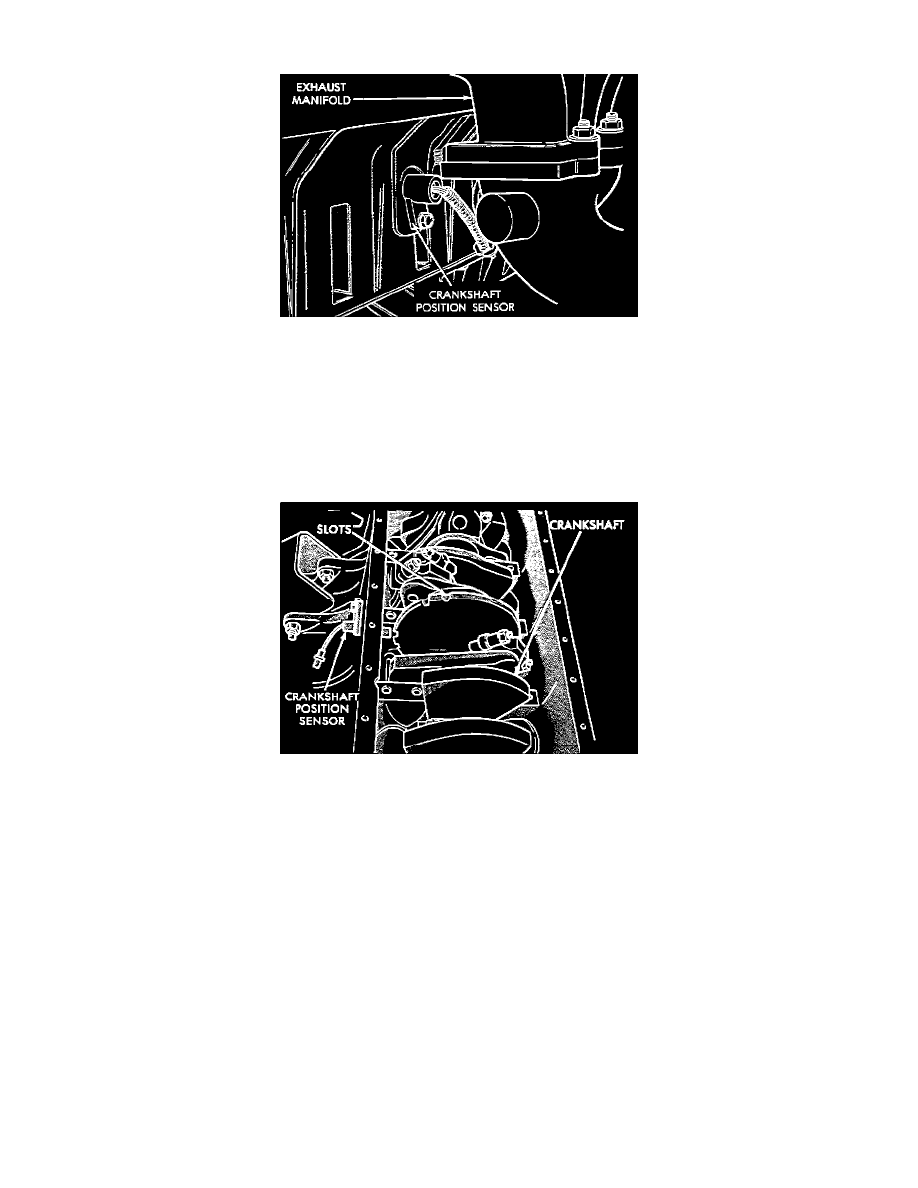Viper V10-488 8.0L (1992)

Crankshaft Position Sensor: Description and Operation
Crankshaft Position Sensor
PURPOSE
The signal from the Crankshaft Position (CKP) Sensor is used to determine crankshaft angle, engine speed, and basic timing.
Powertrain Control Module (PCM) also uses the signal from the Crankshaft Position (CKP) Sensor combined with the input signal from the
camshaft position sensor to properly synchronize injection.
The Ignition Control Module (ICM) uses crankshaft position to determine ignition timing
OPERATION
The crankshaft position sensor is a hall effect switch that detect notches on a pulse ring mounted to the crankshaft.
The notches cause a pulse to be generated when they pass under the sensor. The pulses are input to the PCM. For each engine revolution there are
5 groups of 2 pulses generated.
Crankshaft position is determined during cranking. Once the last slot of a set has been detected, crankshaft position can be determined by camshaft
position input. This process may take up to one complete crankshaft revolution.
If PCM does not sense input from the crankshaft position sensor, PCM will deactivate ASD and fuel pump relay, interrupting voltage to fuel
pump, fuel injectors, and ignition coil, (no start condition).
